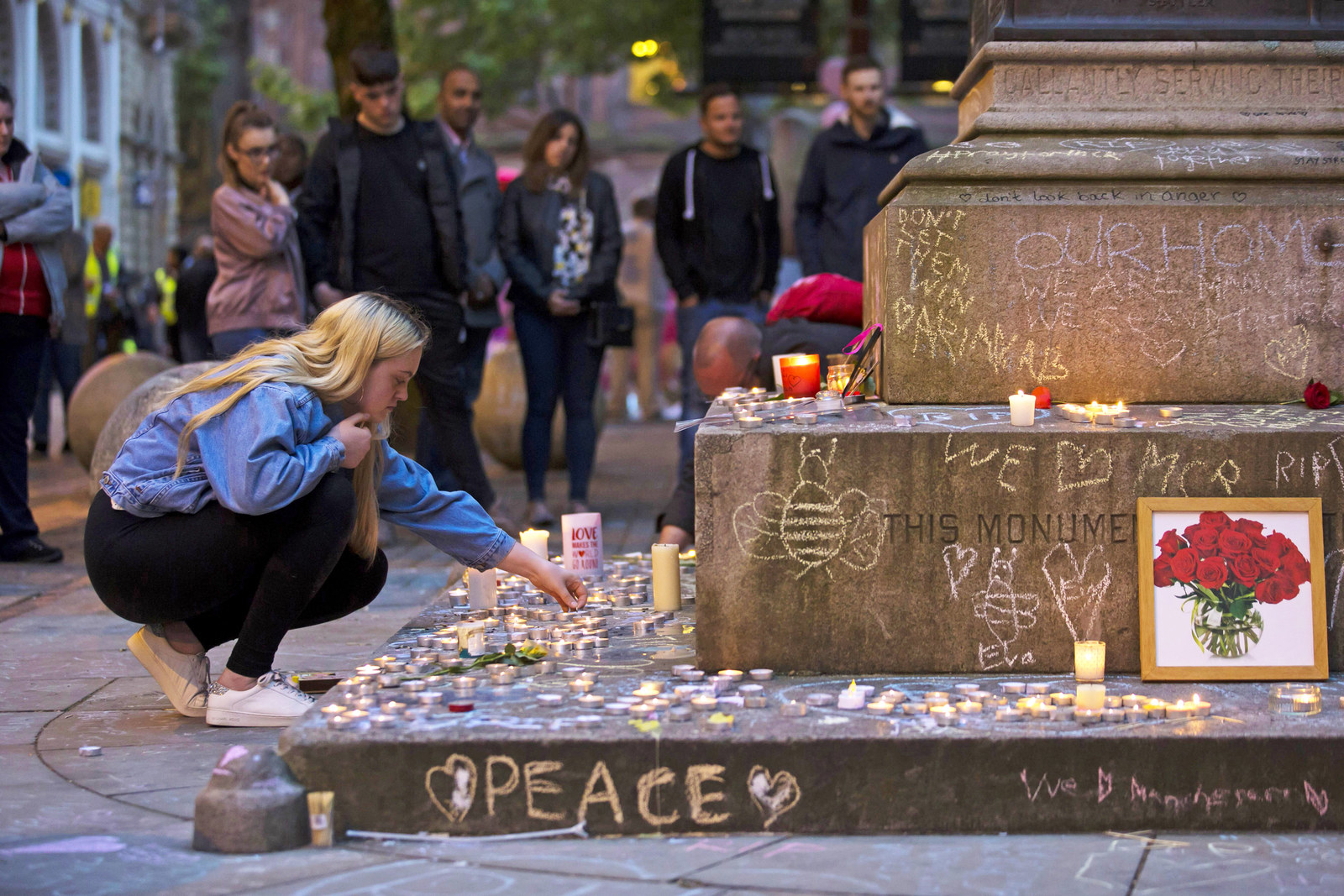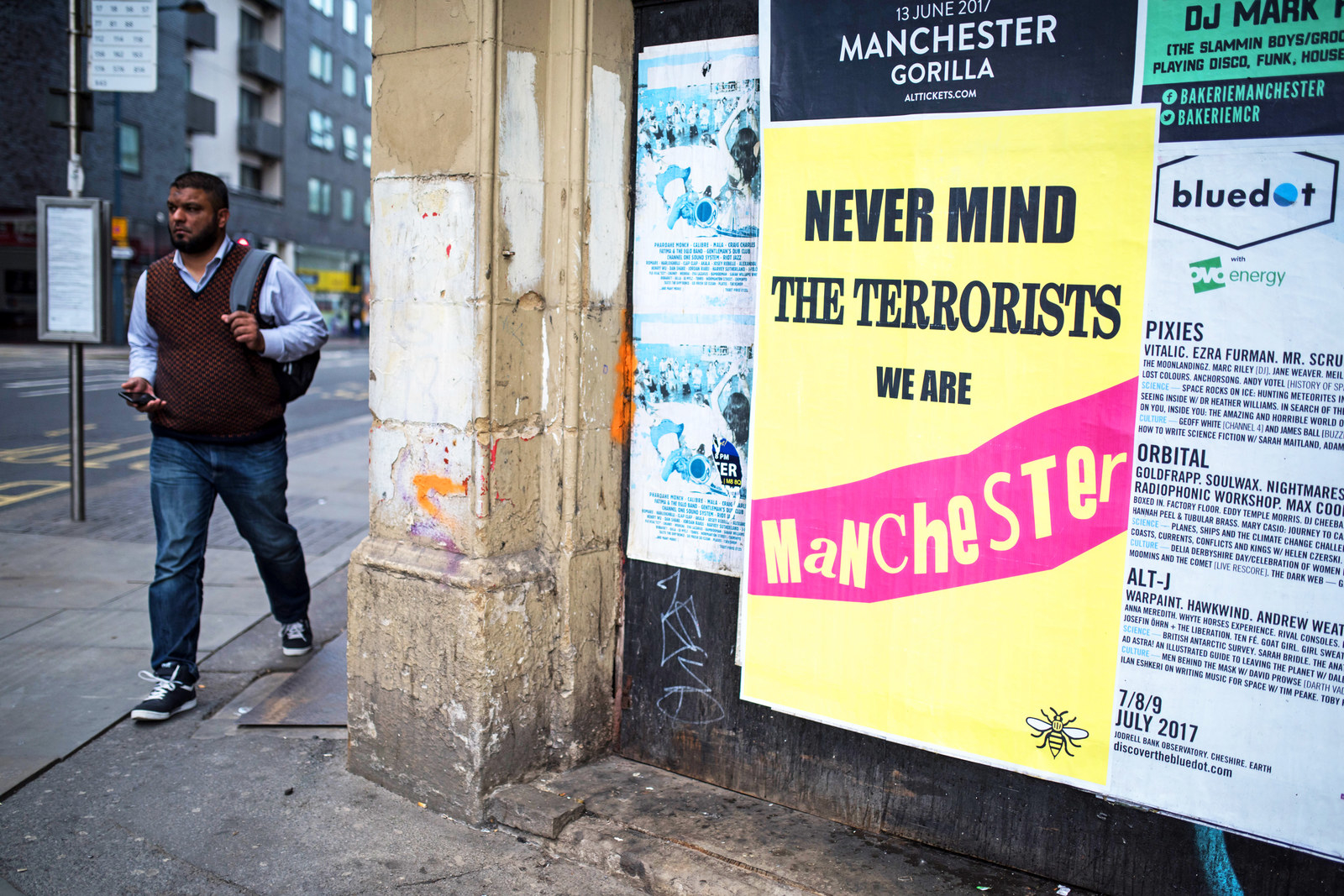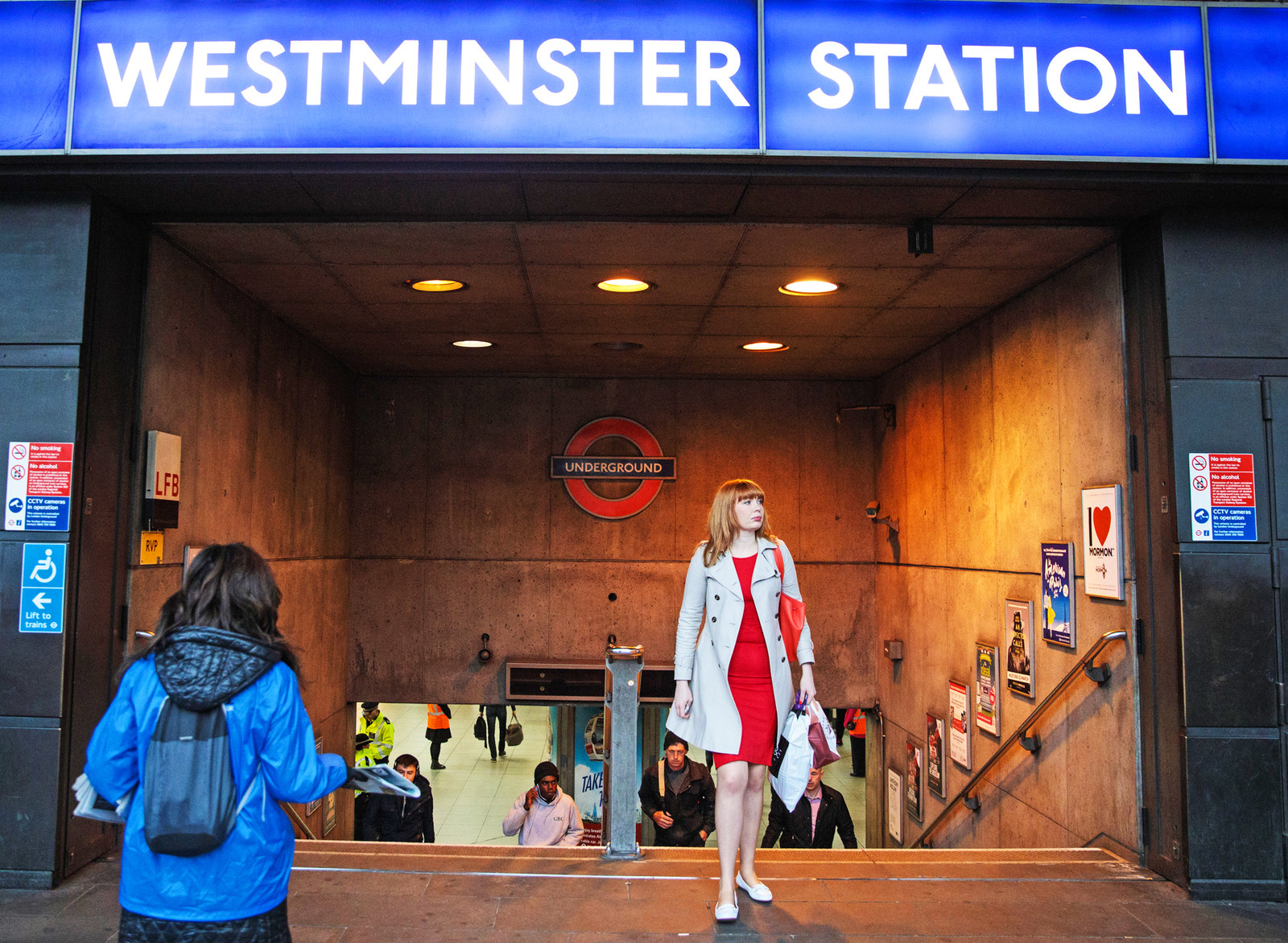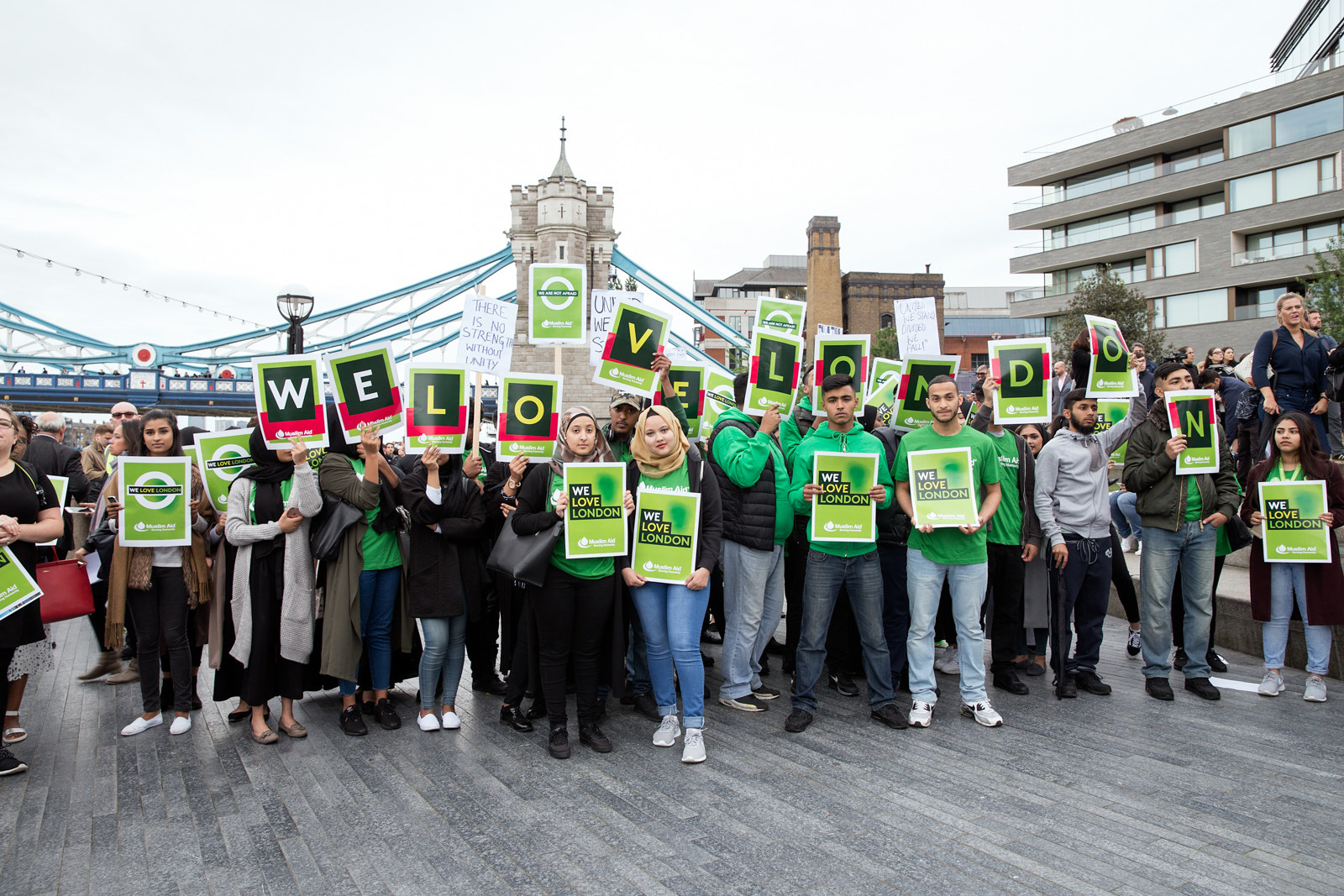After the London Bridge terror attack at the start of the month, the hashtag #SofaForLondon trended as locals opened up their homes to take in strangers. The same thing happened after the Manchester attack two weeks earlier, with people offering spare rooms, beds, and sofas on #RoomForManchester, businesses offering free hot food and drinks to emergency workers, and taxi drivers offering free lifts. In fact, so many people want to help that the NHS has taken to preemptively asking people not to turn up at blood donation centres in the days after an attack unless they already have an appointment.
These acts of kindness, for many people, are a natural reaction to the events that preceded them. But while some are publicly showing that their spirit won’t be broken, others may be quietly suffering – and not just those who were caught up in the attack itself.
BuzzFeed News spoke to psychologists who’ve studied people’s responses to terror attacks about what we do – and don’t – know about how they affect the mental health of survivors, and of the population at large.
In response to last night's tragic incident in #Manchester - we have all the blood required for hospital patients a… https://t.co/YkxqM8k1AC
Survivors who were in the middle of it all – who were leaving the Ariana Grande concert in Manchester at just the wrong moment, or on London Bridge during the attack – are obviously going to be the worst hit.
Feeling anxious and jumpy, finding it difficult to sleep, and having unwanted memories, thoughts, and images popping up are all things they might be experiencing. But while it’s tempting to label these symptoms as post-traumatic stress disorder (PTSD), clinically, psychologists wait at least a month before diagnosing anyone who’s been through severe trauma.
“It would be entirely normal for people to experience really quite considerable levels of distress after exposure to something that horrific,” Matthew Whalley, a clinical psychologist who specialises in treating PTSD, tells BuzzFeed News. “I don't want to say there's nothing to be worried about, but they're just so normal given such an usual event.”
After about a month, some people will be recovering from these thoughts and symptoms and be able to go on with their lives. “We accommodate to stresses and losses, and people are naturally very resilient even to quite severe trauma,” says Whalley.
But these problems don’t go away for everybody. “The stats vary from study to study, but it wouldn't be abnormal to see 30 to 40% of people who've had really direct exposure [to the attack] to go on and develop PTSD,” says Whalley.
PTSD symptoms tend to fall into four categories: re-experiencing the event itself, including in nightmares or flashbacks; avoiding reminders of the traumatic event, like not wanting to go back to the place where it happened; someone’s beliefs and mood being altered, for example blaming themselves for the event, or feeling guilty about not having done more to stop it; and being hyper-vigilant and on edge, possibly having difficulty sleeping and concentrating.
“For you or I, a month after something happens, that memory will feel like that event happened a month ago,” says Whalley. “But in PTSD what often happens is that it's hard to distinguish whether it's a memory or whether it's happening again, so people have memories where it just feels like that event is happening again, which is obviously very distressing.”

But you don’t need to have been in physical proximity to the attack, or to know someone who was, for it to affect your mental health.
In a review paper about the effect of terror attacks on mental health for the British Journal of Psychiatry in 2007, Whalley found that the general population seems to experience an increase in things like anxiety and depression for a short while after an attack.
“What tends to happen is those rates will peak in the first couple of weeks, and then be falling really quite quickly,” he says. “Within a month or two those will probably be back down to their background rates.”
That echoes findings from Robin Goodwin, head of psychology at the University of Warwick, who has studied how people’s values and behaviour change after a terror attack. He and his colleagues surveyed people in the UK after the London 7/7 bombings in 2005, and conducted a similar study in France after the attack in January 2015 at the office of the satirical magazine Charlie Hebdo in Paris, and the attack at the Bataclan concert hall later that year.
“People get more concerned about security, which is what you'd guess,” Goodwin tells BuzzFeed News. People who care more about their friends and family, a trait psychologists label “benevolence”, tend to worry more after an attack. And there’s a gender difference too – women tend to be more worried than men. “That’s not to say men aren’t worried,” Goodwin adds.
In the UK study, Goodwin found that people in London suburbs were more anxious than those living in more central areas and those living outside the capital. That could be partly because they’re spending more time travelling, given that some UK attacks have been on transport, he said. But there could be other factors at play too. “I think when you're in the middle of something it sometimes may seem less threatening than if you're a bit outside, but moving into it,” he says.
These worries can mean that people end up changing their behaviour after an attack. Some will check in more frequently with those they’re close to, and not just to confirm that they are safe immediately after the event – the effect seems to last for months afterwards. Some people also try to avoid going to city centres, or other places they might feel vulnerable.

Understandably, terror attacks also make some of us less inclined to trust strangers.
Nick Giordano, a public health epidemiologist at Lund University in Sweden, authored a study looking at the levels of trust across Britain as part of the British Household Panel Survey, which questioned almost 10,000 people. He found that levels of “generalised trust” dropped in 2005, coinciding with the 7/7 attack in London.
Generalised trust is essentially how much you’d trust any random person you meet on the street. Giordano explains it like this: “On a train, for example, I've got my laptop and my mobile, it's a long-distance trip but there be could be three or four stops. Do you ask a random person, ‘Do you mind keeping an eye on this while I go to the coffee car?’ Would you do that, or would you pack everything up, taking everything with you to buy your coffee, and then go back to your seat again?”
By 2007, though – the next time the survey was done – generalised trust in the UK had risen to its previous level again.
In Goodwin’s study, he found that security worries and increased contact with loved ones typically lasted a few months before people returned to normal, too.
And this timescale fits with what a study of London underground usage after the 7/7 bombings found, as well. In the four months after the attack in London, the number of tube journeys fell by 8%, with at least part of that reduction likely to be because people saw taking the tube as a riskier activity than they had before. Within a year, though, journey numbers bounced back.
“I’d expect those effects to be fairly short-lived," says Goodwin. "People have lives to live."

One emerging area of research is how social media interacts with people’s mental states after a terror attack.
Goodwin says he’s seen a link between the amount people use social media after an attack and how anxious they are. But there’s no evidence yet to say whether or not social media is causing that anxiety, or if the anxiety is making people turn to social media.
“It's a little bit difficult to say what comes first, because people who are anxious already might already have a proneness to [use social media]. It's quite difficult to disentangle,” says Goodwin.
But he’s not surprised to have found a link. “Things like Facebook, Twitter, they're very intimate, direct forms of communication. If you're constantly getting a feed that talks about the threat and also spreads rumours about the threat, then it's not surprising that people are more anxious.”
Another study, done by Emmanuel Monfort at the Grenoble Alps University in France, found that after the November 2015 Paris attacks people who already had difficulty regulating their emotions, and used social media a lot, experienced more emotional distress. Monfort decided to do the survey after seeing his own students “pre-occupied” and communicating a lot on social media in the weeks following the attacks. This effect was something he didn’t see with traditional media, like TV and newspapers. He calls it “emotional contagion”.
Monfort thinks the key to figuring out why this effect exists is to look more closely at how, not just how much, people are using social media after an attack. Some might be using it to get information, others might be looking for social support, and others might be transmitting their own anxieties.

But if anxiety can be spread via Facebook and Twitter, might hashtags like #PrayForManchester be useful in spreading hope and helping people? While there is research showing that after a natural disaster like a hurricane, social media can be used to get important information out, its ability to spread positive feelings is less clear. “We don't know in psychology if it's something useful, or if it's something that might transmit anxiety,” Monfort says.
This reinforces the typical advice for people who know they are prone to anxiety: to step away from the internet and only check in with the news at set times. “When there are events like this that aren't directly affecting their families or their friends, but are major news events, that maybe they shouldn't be following the news, or maybe they shouldn't be incessantly checking up on these things,” says Goodwin.
For those more directly affected by the attacks, Whalley says the best thing to do in the immediate aftermath is make use of natural support networks, including family and friends. “Do whatever feels natural to cope with it,” he says. And if you know someone who’s been caught up in an attack, you should let them know you’re there if they want to talk about it – but don’t pressure them if they don’t want to.
It’s also good to remember that it’s not “illogical” to worry about terror attacks, just because, statistically, you’re much more likely to be caught up in a car crash than in an act of terrorism. “It shouldn't be a surprise that people are more worried about a terrorist attack, because they are more visible, they're much more dramatic, more unusual, and they stand out much more,” says Goodwin. “They undermine what we think about people in general; they make us very cynical and worried about people around us.”
#roomformanchester. Anyone needing help or a place to stay tonight we are 10 minutes walk from the Manchester arena. Spare room and 2 sofas
The good news is that our much-publicised gestures of kindness may be helping people much more than we realise. Giordano says these offers of help contribute to something called “social capital”, meaning that we are not just sharing resources, we’re also sharing goodwill and making an important social gesture, even at a time of great fear and threat.
What could seem like small acts of kindness – offering shelter or comforting someone – could be helping protect the mental health of others, he tells BuzzFeed News: “That people are offering sofas, are donating more blood, are helping strangers shows that despite terror, social capital is still present, and because it's present, it will help people recover.”
